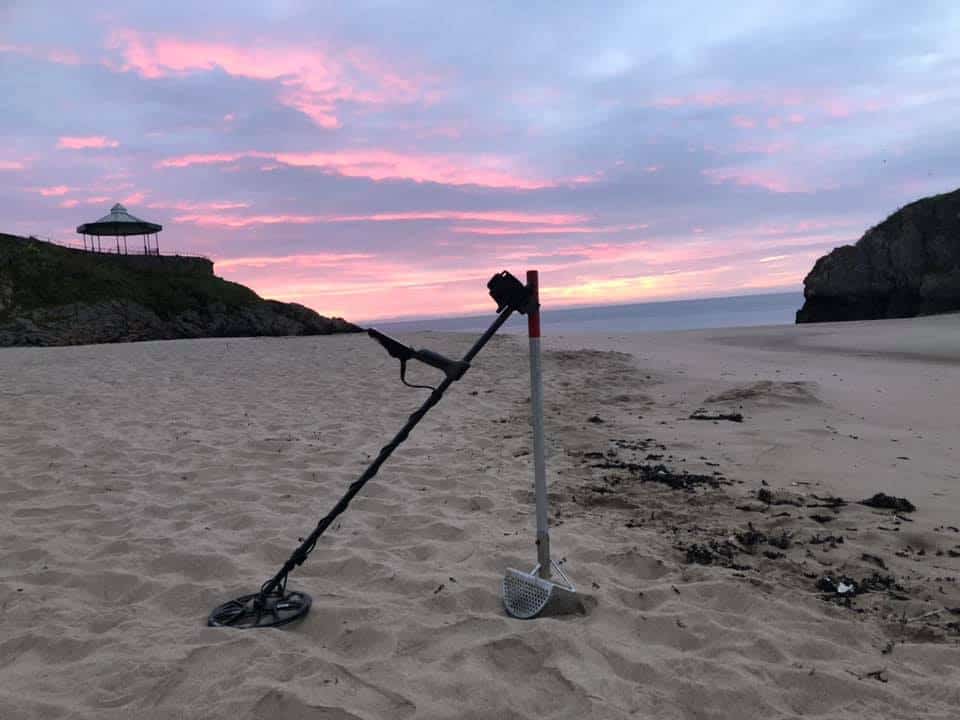
Finding the right places to use your metal detector is one of the most challenging aspects of the hobby! Indeed, choosing a location with low potential in terms of finds is a bad idea as you might find yourself digging non-stop to come up with little to no finds …
… In this article I list and breakdown 50 Metal Detecting Places that you should try!
(Important Note: I’ve chosen many of those locations based on where people might lose their things! Please note that I am not encouraging stealing other people things or anything like that. Honoring the Metal Detecting Code of Conduct, I always encourage hobbyists to return found things to the owner when the latter is known and accessible. Thank you.)
1) Beaches
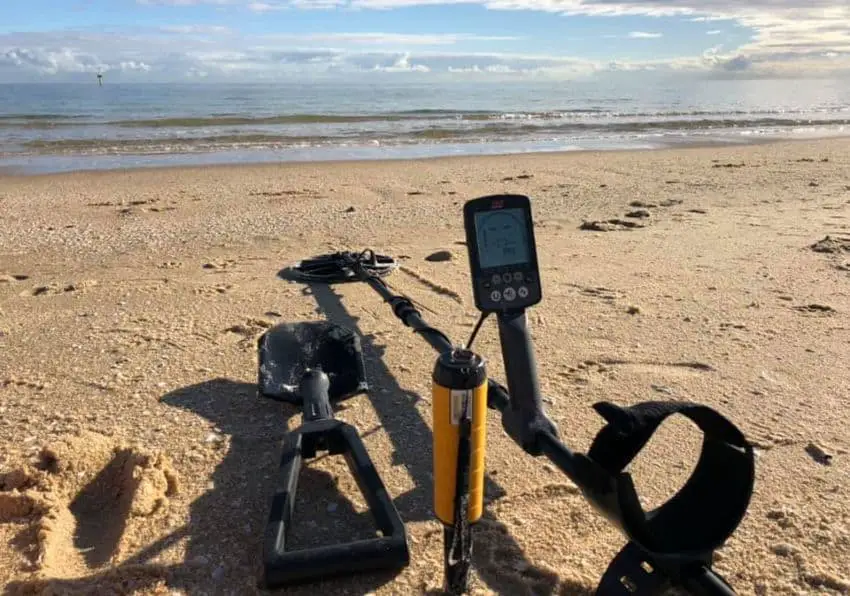
Surprise, Surprise! This is probably the places where you will most likely find someone swinging his beloved detector …
… Indeed, this is the place where most valuables are lost!
The good thing is most beaches are public and allow detecting activities to a certain extent! Yet, you should make sure that no prior permission is required.
Salty ground and water could be somewhat challenging, that why you will definitely need a solid metal detector with good ground balance (Check This Example Here at Amazon)!
Finally, for more info I highly invite you to have a look at this Beach Detecting Guide! You will learn a lot …
2) City/Town Parks
Scanning the parks in your neighborhood should be a high priority on your list. However, it is likely that you will need to obtain permission before you can start detecting and digging in any public park, so get the documents in place first.
Parks are some of the best places for finding valuables because this is another place where people tend to gather in large numbers.
Functions such as sporting events, concerts, and fetes are commonly held in parks.
You can increase your chances of finding valuables in a park by identifying the place where people have used the grounds, such as under a tree, around benches, around a kiosk if there is one, etc. These are all good places to begin detecting.
Keep in mind that Parks could generally be trashy, so you will need a detector with decent discrimination (Check it This Example Here at Amazon).
3) Circus/Fair Sites
If there is a circus or fair in your town or city, then once they move on, it is a golden opportunity!
In fact, many detectorists have, in the past, hauled a pretty impressive finds from such locations.
4) Old Churches
This could be a Grey area depending on where you are located and the regulations there!
It is of utmost importance that you respect any burial grounds that are there are steer clear of the gravestones. You can scan with your detector under the old trees and gates.
If the church is still being used, it is best to ask the priest or churchwarden for permission first.
5) Old Homestead Sites
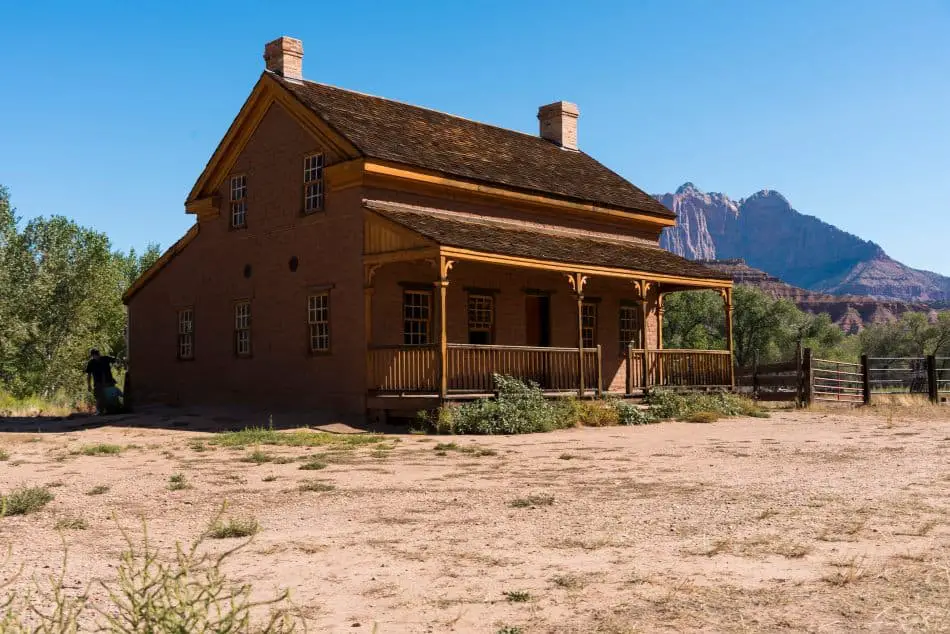
Detecting at old homestead sites may prove to be quite profitable. If you know where to find these sites, then the first thing to confirm is whether it is located on private property. In that case, don’t forget to obtain permission.
Many people find it difficult to find these old homestead sites. However, there are certain things you can look out for that may help you find these sites. These include:
- If you are new to the place and have never visited that area before, begin by looking for a freshwater source. A river or a lake, or anything that would provide fresh water. Then look for the highest ground located near this water source. Some of the first settlements are likely to be found in these areas.
- In the spring, you can search for daffodils or other flowers growing out in the woods or fields as these usually look out of place. This is another sign that people were staying there in the past.
- Big old trees such as oak trees or maple trees that may have even fallen into a rotting state, but if you can still see them, then these are also likely to be places of either old home sites or even picnic groves in the past.
- Glass shards, pottery shards, bricks, any items that are not going to be picked up by a metal detector, are also vital to finding old home sites.
It is possible to find many goodies at these old homestead sites, so all the effort spent in searching for these sites often proves to be well worth your time.
One of the best ways to find old home sites is to rely on old maps. I strongly invite you to check these secrets to find old maps for metal detecting!
6) Swimming Holes and Areas
Popular swimming holes and similar areas can yield some goodies. These places are usually populated by crowds, and you can end up finding some nice jewelry pieces or modern coins.
However, as these areas are generally not maintained, there is a good chance of finding a lot of trash as well. Using a detector with good discrimination would be the preferred choice here.
Many detectorists have reported finding rings and coins in swimming holes.
7) Picnic Groves
A picnic grove can prove to be an excellent site even if you feel that it is unlikely going to yield too many finds.
Many picnic groves are used heavily, and you are likely to find many interesting things if you detect here. For example, even a quick scan of the ground can help you find several coins and jewelry pieces.
One detectorist even found an antique keyhole plate. Many people have found some ancient coins as well, especially at those picnic groves that have been used for many years.
To begin searching, try to target any big and old tree. People are most likely to sit under the shade of these trees when on a picnic. So begin by searching around the roots of the tree.
However, make sure you change the settings of your detector to eliminate trash such as soda cans, pull tabs, and other items.
8) Athletic Fields
Sporting events tend to draw large crowds that sit, cheer, stand, and jump up and down with excitement.
This increases the likelihood of coins and other valuables falling out of their pockets. Athletic fields are popular places for many detectorists.
To increase the chances of finding valuables, go there right after an event has taken place.
9) Scout Camps
It is a good idea to detect at scout camps (BTW, I highly recommend checking these tips to metal detecting in hiking trails), but you will need to detect there only at times when the camps are empty, and there is no scout team staying there.
Scout camps are populated not just by children (who are prone to losing things), but also by adult counselors, who also tend to leave behind or lose many exciting things.
Remember that there are many types of activities that go on in a scout camp, which increases the probability of people losing their things.
10) Rodeo Arenas
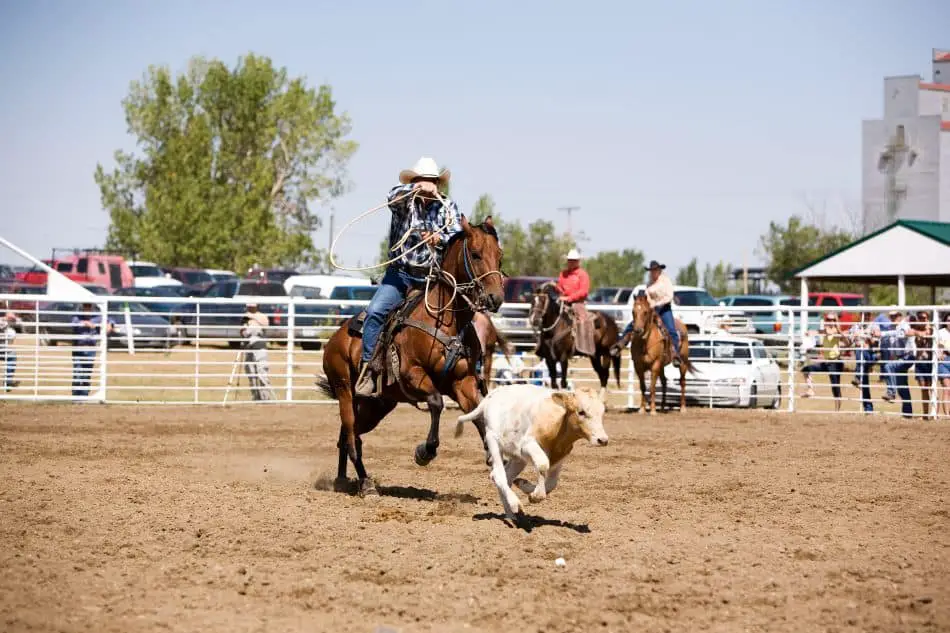
Rodeo arenas are a decent place to opt for!
Not only is it a gathering place for large crowds, but ongoing competitions mean that both men and women end up losing coins, jewelry, and other valuables frequently from their pockets and hands as well.
There have been many rings, broken necklaces, modern coins, and many other items found with a metal detector in rodeo arenas.
It is best to detect in rodeo arenas after a competition to increase the chances of finding valuables.
11) Campgrounds
Campgrounds are known places where people gather and stay. However, there is also going to be a fair amount of trash to be sorted through before you find anything of value.
You can also consider detecting at abandoned campgrounds. There have been some lucky detectorists who have, in the past, found treasures buried in such abandoned campsites.
Apart from buried treasure, you can expect to find coins and jewelry at campgrounds. Some bottle caps and old bottles may also come up in your find.
12) Ghost Towns
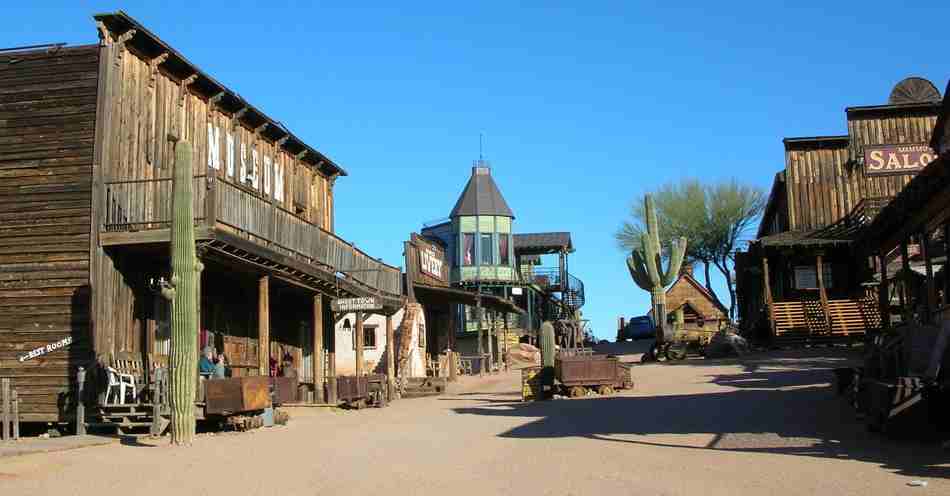
Ghost towns are communities that used to thrive at one point in time but have long since been abandoned. While it is an unfortunate incident, but ghost towns make for a great place to metal detect.
You can research where these ghost towns are located online, or there are also many books you can find about the history of a particular area.
Remember that if the ghost town is located on private property, you will need to get permission to detect there.
There are many programs available, such as the OnXMaps Hunt mobile application that shows the boundary lines of any government, private, and public land.
These apps can come in handy when you want to know whether you are detecting on private property or federal land.
For more information, I highly invite you to have a look at this ghost town detecting guide!
13) Old Schools
Old school grounds can yield up some pretty great finds. There is a good chance to find old coins and jewelry there.
Many old school buildings may also yield up some finds such as time capsules which were commonly placed by classes years ago.
14) Roadside Rest Stops
Along many highways, there are rest stops where travelers can stop to take a break, use the restrooms, and freshen up.
Some rest stops also offer some light snack options and beverages. Many of these rest stops, though, have become abandoned over the years as many of the older routes fall into disuse.
There is usually no data available any more on who owns them. Many detectorists have reported finding valuable finds at such roadside rest stops.
However, it is prudent to find out whether the place is located on private property or whether it is state-owned public land.
15) Sidewalk Grassy Strips
One of the biggest questions facing detectorists when it comes to treasure hunting on sidewalk grassy strips is whether you need to ask for permission from the house owners nearby, or can you just go ahead and detect in these places?
The fact is that this a bit of a gray area and nobody really knows who owns all the curb strip grass that falls between the sidewalk and the street.
So most detectorists just help themselves to detect on sidewalk grassy strips when the place is empty.
If there is a house next to the strip, though, it is always a good idea to ask the homeowners for permission once before you start detecting and dig up the place.
You are more likely to find old coins and rings, and other smaller items can be found here. In fact, some detectorists have even found silver rings and coins hailing back to the 1800s.
16) Amusement Parks
Amusement parks are great places for metal detecting, especially if it is an abandoned amusement park. With the economy dwindling in recent years, there are many amusement parks that have shut shop and are perhaps one of the best places for metal detecting.
If you want to detect at a currently operating amusement park, then you can only do this after getting permission from the management.
However, detecting at an amusement park can throw up a lot of trash as well. Some detectorists report finding only trash such as a bunch of nails, pull tabs, bolts, old batteries, etc.
Some have reported finding interesting finds such as a sledgehammer and an old railroad spike, but these items are unlikely to be of any value. Hunters detecting at old amusement parks have reported finding silver coins.
Try searching around the concession stands, and tickets stand – basically, any place where people are likely to have taken out money. It is also best to begin detecting in an amusement park with high discrimination settings.
Also, use a pair of good headphones to listen for weak signals and make an attempt to dig them up. You really never know what you might end up finding at an amusement park.
17) Rural Mailboxes
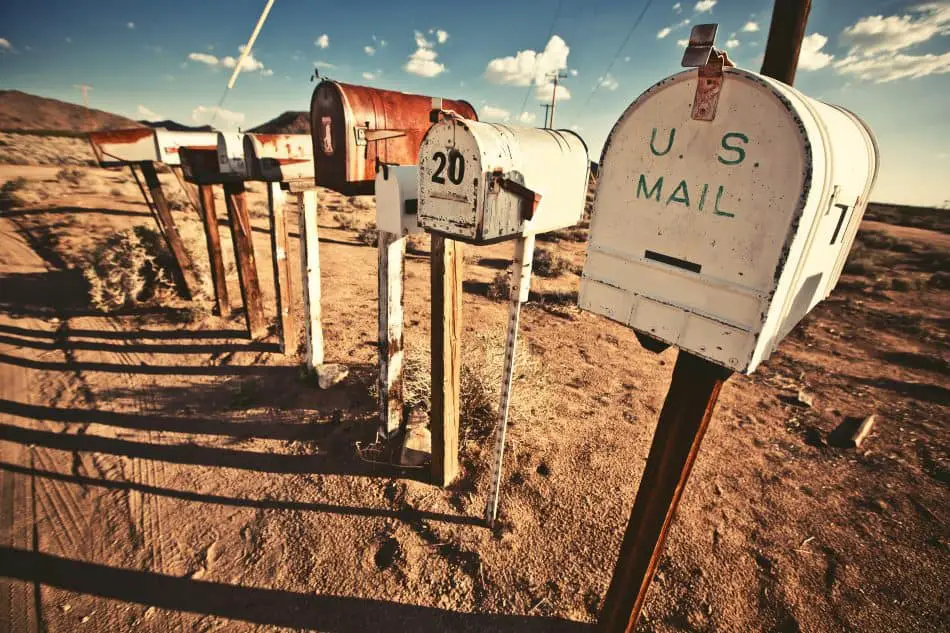 If you are detecting in rural areas, or if you live there, then you would know that the mailboxes tend to be a collecting point of sorts for the townspeople to stand around and talk.
If you are detecting in rural areas, or if you live there, then you would know that the mailboxes tend to be a collecting point of sorts for the townspeople to stand around and talk.
Many people also tend to take out things from their pockets at this place, making it a likely spot to find all types of coins.
However, this is also a spot where you are likely to find a lot of trash, so make sure that you set up your detector to separate out junk signals.
18) Fort Sites
Fort sites are an excellent location, and if you get lucky, you may just end up discovering a buried treasure or a historically valuable item.
Forts are also ideal for finding relics, so if you are focused on relic hunting, then detecting in forts is the perfect solution for you.
However, many countries/cities prohibit the use of detectors in historical places such as forts. In Europe, especially, detecting in forts is generally out of bounds.
For example, detectorists hunting in Indian forts, where the laws are quite lax, have reported finding valuable ancient coins, relics, jewelry from tourists, and many other items.
19) Winter Sledding Areas
Winters also harken the arrival of winter games such as sledding. Many people gather at winter sledding areas to participate in the fun and games.
It is a gathering spot for both children and adults, thus increasing the likelihood of finding some treasure with your detector. However, it is not advisable that you go detecting in the middle of the day when people are thronging the place. You are likely to disturb the crowd there, and someone may even complain about the intrusion.
While sledding places are usually not owned privately, but it is always better to find out if they are so that you can get permission to detect.
Remember, though, that to detect in winter sledding areas, you will need to have a weatherproof metal detector that can operate properly in snow (Like This One Here at Amazon).
When detecting on snow, keep in mind that your detector is likely to lose detection depth, depending on how deep the snow is. It is better to avoid detecting at places where there is a lot of snow cover because the chances are high that it won’t be able to find any targets that were recently dropped before the snowfall.
Also remember that apart from the depth loss due to snow, you will also be fighting against frozen ground, which can prove to be an absolute nightmare to dig up.
20) Fishing Spots & Camps
If you research a little bit about your town/s history and talk to the local old-timers, you will be able to find out where the local fishing and old swimming spots were located.
Many of the old fishing spots usually also served as drinking and partying spots, and a lot of them also doubled up as swimming holes. These are places where people are likely to take off their shirt or their outer clothes, losing change and smaller items as they take them off.
If you want to go further back to the town’s history, then many people also used to wash their clothes at fishing spots, fishing camps, or swimming holes. It is highly likely that many of the fishing spots are even today being used as picnic spots.
Searching the banks and shores of the ponds, rivers, lakes, or streams, are known to be great locations for finding jewelry, coins, trinkets, and many more interesting items.
21) Resorts
If you are detecting on resorts, then the ideal places to search for would be the walkways, sidewalks, near the swimming pools (if allowed), and on the beach (if the resort has one).
These are likely places where people tend to lose things, thus increasing the chances of finding something valuable.
22) Old Barns and Outbuildings
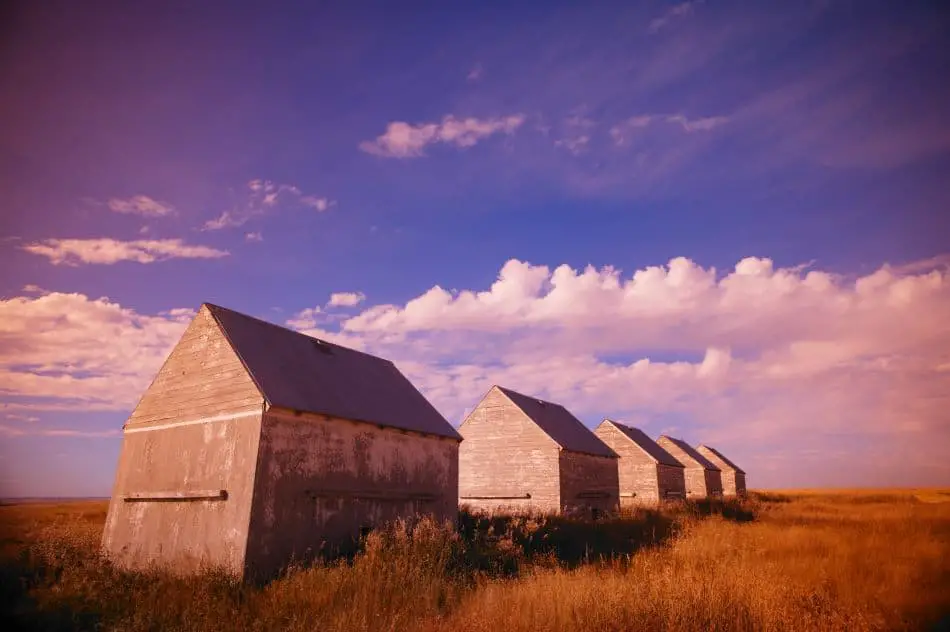
Old barns and outbuildings are some of the fascinating places for metal detecting. It is likely that you will find old barns and outbuildings in rural areas. So if you are visiting someplace that has a barn, then make sure that it is on your list of places to metal detect.
In fact, you would be surprised to know about all the valuable treasures that have been found by detectorists in old barns and outbuildings.
From ancient coins to buried treasure worth millions, barns are one of the most unlikely places to search.
For example, in 2007, a detectorist found an entire stash of 200-year-old coins with a total value of $200,000 buried in a hole in an abandoned barn.
Another amateur treasure hunter in France got the shock of their life when they found 497 gold coins while renovating an old outbuilding. The stash was valued at $980,000.
23) Battle Sites
Who does not want to use their metal detector at a battle site? However, many countries have strict laws that prohibit using detectors or any type of treasure hunting on battle sites.
So before venturing out into any battlefields with a detector, always be aware of the laws of the place.
In Eastern Europe, for example, some battle sites allow treasure hunters. Some of the common finds detected in Polish battle sites include a pistol, a swastika-adorned badge, shards of shrapnel, Soviet medallions, some coins, several bullet casings, etc.
While detecting at battle sites, though, one needs to be careful as there are often many unexploded ordinances left buried in the ground. If you come across any such item, it is best to inform the local authorities at the earliest.
24) Band Shells
One spot that is often ignored by detectorists is to search at old band shells. It is likely that you will need permission to detect at such a place. Detectorists have reported finding many interesting finds at band shells, including:
- An 1833 Capped Bust Type dime (nearly 30 years old)
- 1918-P Mercury dime
- Silver coins
- Pennies
- Half dollar coins
- Gold plated wedding rings
- Several rings
- Bracelets
There was also a fair share of many junk finds, including pull tabs and foil, but if you set your detector to ignore such targets, you will not get too many false signals.
25) Racetracks
While not the first choice of place one thinks about for detecting, a racetrack can sometimes also yield some nice finds.
You just need to know where to search. Under the racetrack, bleachers are the perfect place to begin detecting.
As racetracks draw huge crowds and usually there is a lot of money being exchanged here, you are likely to find many coins.
Many detectorists who have detected in their neighborhood racetracks have reported finding several coins. In fact, within 5 minutes of searching itself, they started finding coins that too they were buried just a little underneath the ground, and they did not need to dig too much.
It is always a good idea to take permission to use a detector at a racetrack.
26) Rural Boundary Walls
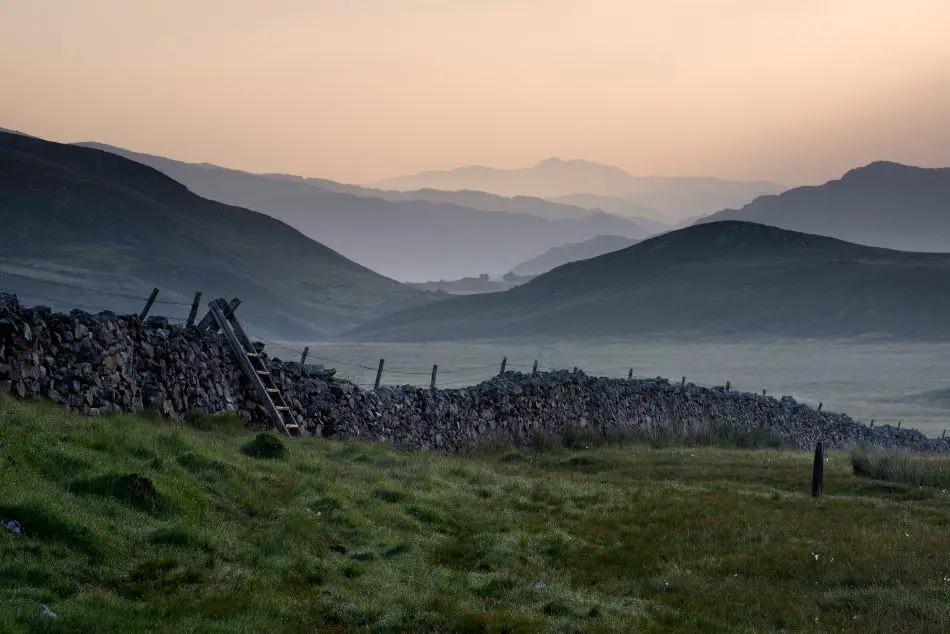
Detecting on boundary walls is actually a good idea because in rural places many people used to hide their valuables inside the walls.
While the place may have been abandoned by now, but chances are still high that you will end up coming across some buried treasure.
Keep in mind, though, that it might not be too much owing to the rural settings, but it might still be sufficient enough that warrants you to at least take one look with your detector.
27) Roadside Fruit and Vegetable Stands/ Farmer Market Areas
These are places where people gather and a lot of money changes hand, increasing the chances of loose chain falling on the ground and then getting buried over.
What’s more, it is very likely that you will not need to take anybody’s permission also for detecting in these places.
So while you are shopping for fruits and vegetables either at the roadside stalls, or at a farmer’s market, it might be a good idea to bring your detector along. If nothing else, you are surely going to find some coins.
28) Under Seaside Boardwalks
Seaside boardwalks can be a good place to search because at one point of time they were probably covered by water, or maybe even now the high tide pushes things behind the boardwalks.
The chances are high of finding some ancient buried coins, relics, or jewelry here. However, make sure that you are using a metal detector that works on the beach in order to boost your chances of finding something.
29) Flea Market Areas
Flea markets can be excellent places to find a great bargain. Sometimes you end up finding something really valuable at these markets without counting on it.
Combining your trip to the flea market with metal detecting can be a good idea as these crowded places usually have many interesting finds that can be located with a detector.
Many detectorists have even reported finding long lost relics that accidentally were dropped and then got buried under the ground.
31) Drive Ins
Drive-in theaters are now usually found to be closed. In fact, many of these have been closed for nearly 20-30 years. You may need to take permission to detect at drive-ins if they are closed up.
You might not find anything too valuable here as other detectorists have reported finding some pennies, bottle/can opener, several bottle caps, and dozens of pull tabs. Still, it is worth a try to detect once at least.
32) Canal Paths
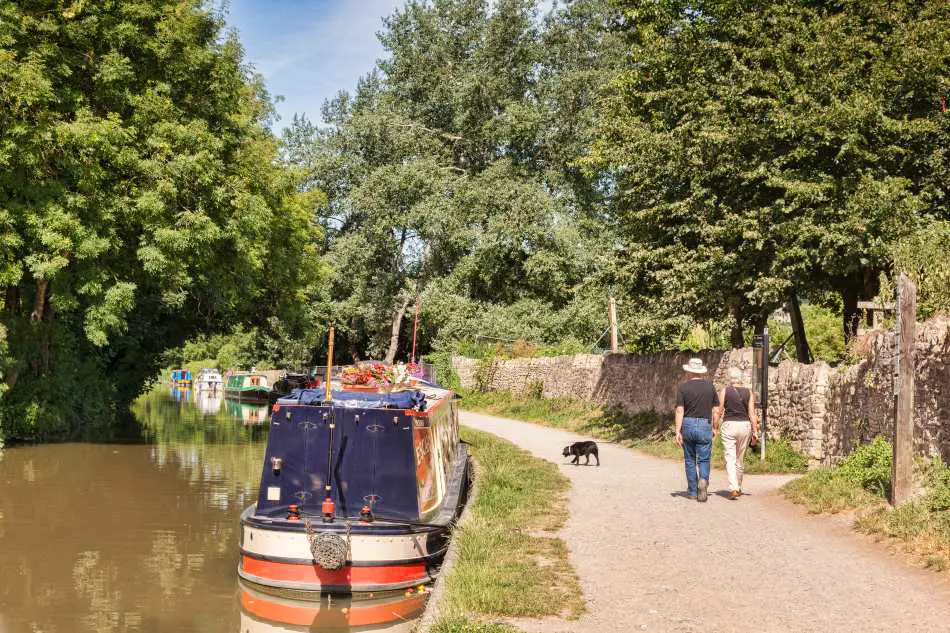
You will be surprised to find how many cool things detecting along canal paths can yield.
Many treasure hunting clubs also organize walking treasure trail events to search alongside canal paths.
For example, in the UK (Learn about metal detection in the UK), many clubs organize hunts along the Bugsworth canal and the Grand Western Canal.
You are likely to find different types of coins, trinkets, jewelry, etc. while detecting along a canal path.
33) Vacant Lots
Certain vacant car lots could be city-owned property, while some can be private property. If the vacant lots are privately owned, you will need to get permission to detect.
How much of valuable items you can find in vacant lots depends on the location of the lot as well as for how long it has been vacant. Keep in mind that vacant lots often also become home to drug dealers and the homeless.
So you will have to be careful if you want to detect here. Be prepared to come across a lot of trash here while you detect.
34) Motels
Some motels may allow you to use a metal detector on their premises, while some have strict laws against any type of treasure hunting.
If you are detecting in abandoned motels, then you need to be careful and watch your step as, over the years, the area might have become brittle, and the floor or walls may cave in.
Always make sure to inform someone or detect with a partner if you are hunting in an abandoned motel.
By doing some research and selecting a motel carefully in a good locality, you will be able to increase the chances of finding valuable items.
35) College Campuses
Most college campuses do not allow you to metal detect on their premises. If you find a college campus that is no longer in use, you can give it a try there.
However, detectorists who have tried their luck at college campuses have not found many significantly valuable items. But you never know!
36) Town Squares
It may be challenging to navigate through with a metal detector if it is very crowded.
Due to this, the best time to detect at town squares is early morning. You may get lucky as many detectorists have reported finding several valuable items while detecting at town squares.
Many people have found various denominations of coins, silver rings, gold rings, belt buckles, some trash, and other decent finds.
37) Urban Yards and Backyards
Urban yards and backyards are the easiest places to begin using your beloved detector, especially if you are a beginner.
Most urban homes are built on land that has been used previously, and these are active places where people and children eat, relax, run, and dig.
This translates to mean that there will be plenty of opportunities to drop many things. If you are aware that your house was previously occupied by residents, then you can begin detecting for dropped coins, jewelry, and other precious items without wasting any more time.
38) Areas Around Skating Ponds
Skating ponds are similar to sledding areas where a lot of people gather to enjoy winter games and outdoor activities.
When detecting at skating ponds, though, one has to be extremely careful about not slipping.
You will also need to have a detector that can effectively detect through the ice and frosty ground. Remember to bring along a good quality shovel for digging the frozen ground.
39) Hunting Lodges and Camps
Hiking along hunting lodges and camps can be a solid option!
Campsites and hunting lodges can yield many interesting finds such as lots of coins, jewelry, old trinkets, toys, valuable military relics since many military personnel often go for hunting, and many other useful items can be found out there.
40) Mining Camps
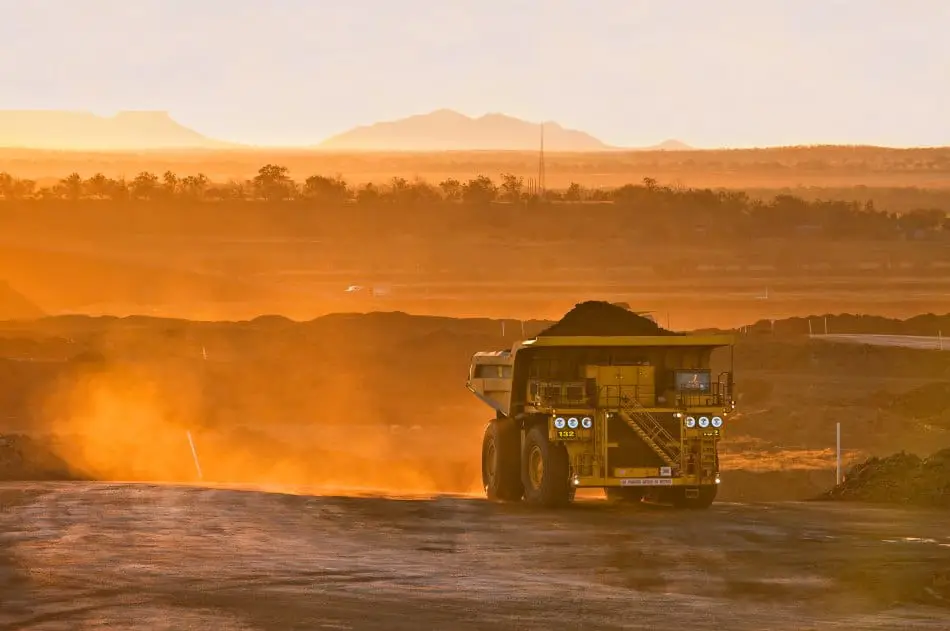
Mining camps can prove to be some of the best locations to search for coins and relics, and if you are lucky, you may even find some precious stones while you are hunting.
This is because, throughout history, there has been a huge influx of people flocking to mining towns in search of gold and silver.
While most people are focused on finding gold and silver nuggets or coins, but people often tend to ignore the mining camps nearby the mines, which can also yield some ancient mining relics and other valuable finds.
The best mining camps to hunt for relics are in the lesser-known gold rush towns of the olden days.
These abandoned mining camps are the ideal places to detect to find some fascinating mining relics today. In many cases, detectorists have also ended up finding gold and silver nuggets and even coins in these mining camps. Other common finds include nails, metal straps, shovelheads, plenty of old coins, buttons, snuff tins, old bullets, belt buckles, old revolvers, amongst others.
41) Railroad Grades, Stations and Junctions
You will be surprised to learn that there are many books that show where these old railroad stations and junctions are located, and even the smaller shacks that are situated along the tracks are indicated in these books.
If you are searching at a railroad station, junction, or grades, then it is essential to detect away from the tracks as otherwise, you will keep getting false signals.
You are likely to find hoards of items, though, lurking between the rails and also on the stations, especially if it is an abandoned one.
If the station is in use, then you will have to get permission from the station in-charge. Most stations do not allow any form of metal detecting activity.
42) Hiking Trails
There is no shortage of hiking trails, especially in cities that are surrounded by mountain ranges. Hiking trails are perfect places to search.
Here are some of the potential places to hunt there:
- Edges of the path, especially if the trail is lined with rocks
- Any areas where people tend to stop to rest along the trails. For example, large rocks that are ideal for sitting, under big trees to rest in the shade, and rock overhangs where people are likely to stop to get out of the sun.
- Scenic overlooks where people are going to stop to take photos or simply enjoy the view
- Along any creeks or water pools on the trails
It is also worthwhile to consider turning up the sensitivity setting of your detector.
42) Waterfalls
If you have a metal detector that can be used underwater (Check This Example Here at Amazon), then exploring waterfalls can prove to be a very exciting opportunity for you.
Many detectorists have even found buried treasure under waterfalls, behind waterfalls, or near waterfalls. Even if you don’t find anything of much value, the experience itself will prove worthwhile.
43) Old Gas Stations and General Stores
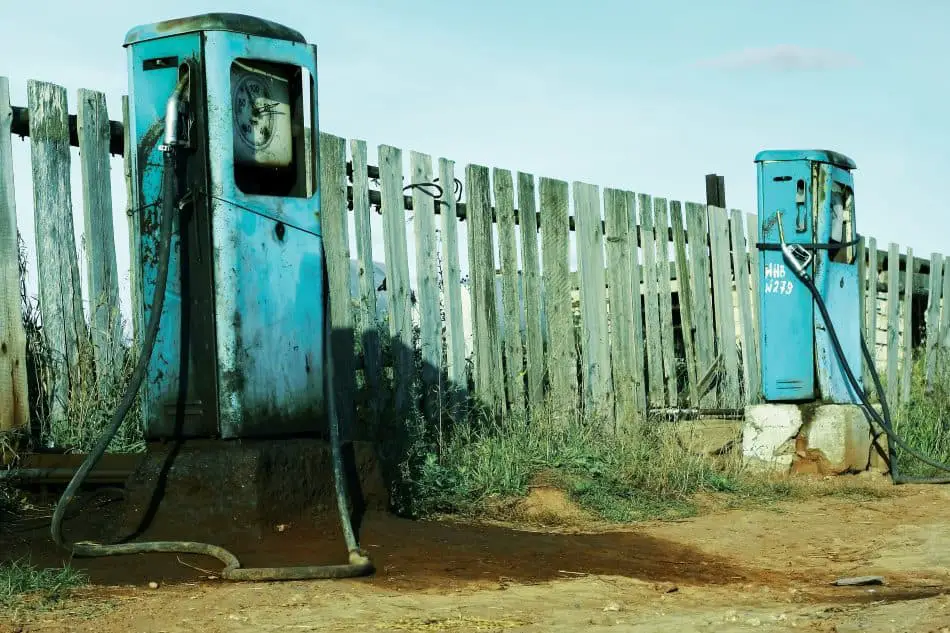
Gas stations and general stores have always attracted a lot of crowd and if they are old and abandoned, then there is a good chance that you will end up discovering many types of finds in such places.
However, these are likely to be private properties and you need to get permission before you can detect.
44) Fence Posts
In the earlier days, fence posts often used to witness crossing of many people from here to there.
Due to this, there is a good chance of finding knick-knacks with your metal detector. However, if these are old and no longer in use, then expect to find a lot of trash.
45) Bridges and Fords
Bridges and fords make for fascinating detecting spots as they can yield some valuable finds.
However, if you are looking for some older bridges and fords, then it might prove to be a bit tricky since many rivers and lakes have changed so dramatically in recent years, with many having dried up.
Many people tend to use suction dredge near fords to dredge up the area where they believe some valuables might be located.
46) Flower Beds
Flower beds can surprisingly give up many finds. For example, a detectorist once found a 1937 George VI one penny in their own flower bed. Many other people have also reported finding many interesting and old coins in their flower beds, especially in houses where people used to live earlier. Buttons, bottle caps, pull tabs, etc., are some of the other commonly found items from flower beds.
47) Playgrounds
Most playgrounds are usually covered with wood chips, making it easier to find and dig up your finds.
Expect to find most coins in playgrounds. Most detectorists that are coin shooting tend to aim straight for the playgrounds.
Since most playgrounds have metal bars and swings, you have to be careful with false signals. Sweep your coil, and don’t be fooled by the signals from the metal bars.
48) Old Garbage Dumps
If you genuinely want to explore an old garbage dump, you need to be prepared to dig through a whole lot of garbage, and that too there is no guarantee that you will get lucky.
Some detectorists claim that old garbage dumps make for some great finds, but a dump filled with junk can be tough to deal with.
You also need to be careful while detecting here as you there may be sharp edges and poisonous items that can harm you.
49) Cloth Lines
Detecting under clothes lines is a great place for hunting as people usually many times, just dry their pants without checking the pockets, causing the items to fall down, and many times they get buried under the ground.
However, be ready to also find clothes pin springs in abundance.
50) Old Stone Quarries
Some detectorists have been lucky to find small flakes of gold within the veins of the quarry after explosions have taken place.
Prehnite crystals and quartz deposits are also common finds in stone quarries.
Final Thoughts …
Here you have it! Hope this article will give you enough ideas where you can use your beloved metal detector …
… No excuses now, haa! After reading this Post, you should start planning your next hunt for as soon as tomorrow!
Finally, if you are looking for places to detect without permission, then have a look at this article!
